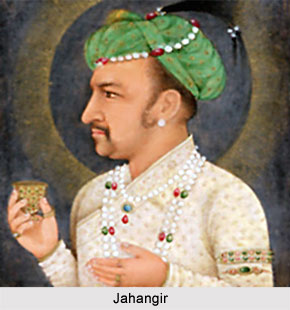 Religious policy of Jahangir has been placed between his father, Akbar and his son, Shah Jahan. He had faith in God and observed principles of Islam in a normal way. He was not a religious man. He did not practice principles of Islam strictly. He came in contact with people of all faiths which liberalised his views. He believed in the unity of God. He mostly pursued the religious policy of Akbar and gave equal facilities to all his subjects without discriminating between them on grounds of religion. The Hindus were not burdened by additional taxation and received services in the state according to merit. However, there are certain instances which prove that, at times, Jahangir favoured Islam.
Religious policy of Jahangir has been placed between his father, Akbar and his son, Shah Jahan. He had faith in God and observed principles of Islam in a normal way. He was not a religious man. He did not practice principles of Islam strictly. He came in contact with people of all faiths which liberalised his views. He believed in the unity of God. He mostly pursued the religious policy of Akbar and gave equal facilities to all his subjects without discriminating between them on grounds of religion. The Hindus were not burdened by additional taxation and received services in the state according to merit. However, there are certain instances which prove that, at times, Jahangir favoured Islam.
Jahangir punished the Hindus in the state of Kashmir because they used to marry Muslim girls and convert them to Hinduism. In the same way, threw away the idol of Varaha at Ajmer into a pond and destroyed Christian churches when he was at war with the Portuguese. One reason of punishing the Guru Arjan Dev, the Sikh religious leader, was certainly the religious views of the Guru which he disliked. He also ordered expulsion of all Jains from Gujarat when he felt dissatisfied with them. But, these instances are examples of his occasional frenzy. Jahangir did not pursue a policy of religious persecution against any sect.
He punished Guru Arjun because of the financial help which he gave to the rebel prince Khusrav. He even punished Muslim preachers like Shaikh Rahim, Qazi Nurulla, Shaikh Ahmad Sarhindi etc. when he felt unhappy with them. So there remains no reason to charge him for fanaticism against the Sikhs, the Hindus, the Jains or the Christians. Mostly, Jahangir maintained the spirit of religious toleration with all his subjects and no change was brought about by him in the policy of Akbar.
This article is a stub. You can enrich by adding more information to it. Send your Write Up to content@indianetzone.com



















